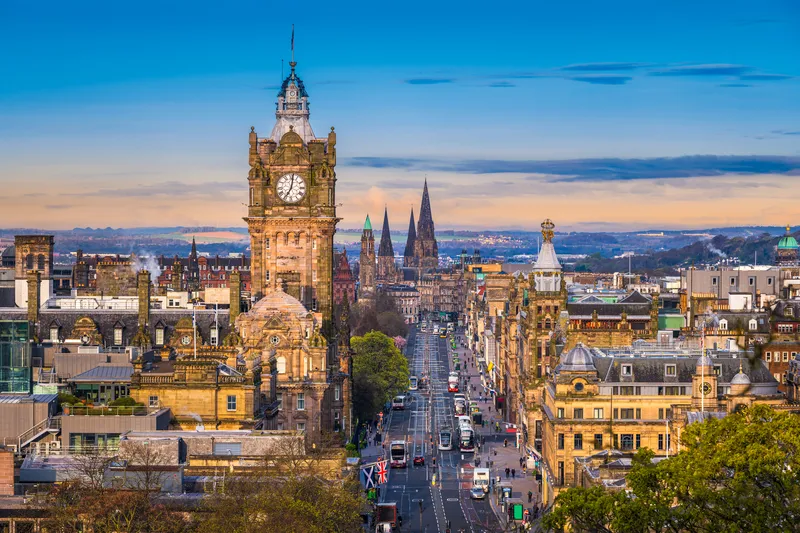
A new research hub will lead the use of digital twins in determining how transport systems can be decarbonised quickly, safely and cheaply.
The TransiT Hub, led by Heriot-Watt University in Edinburgh and the University of Glasgow, is supported by a £46 million investment from the UKRI Engineering and Physical Sciences Research Council (EPSRC) and 67 partners.
Personalised digital twin assistants, could also build an understanding of a user’s mobility needs and journey requirements. These could then offer near to real-time journey options based on individual needs and budget, as well as the reliability of transport services and how the impact of weather might change them.
Feryal Clark, Minister for AI and Digital Government, said: “We see a technology future for British people which enriches and improves their lives. The research TransiT will now carry out is a prime example of how we’re supporting cutting-edge innovations to make that vision a reality.
“On top of saving the public time and money on the journeys they take day-to-day, this project will also harness the power of transformative digital technologies to cut carbon emissions – demonstrating the incredible impact technology can have in improving our public services, tackling climate change, and beyond.”
Transport Minister Mike Kane said: “Digital twinning is a powerful technology that can help us integrate transport networks, improve efficiency and deliver greener transport for all.
“The launch of TransiT is an important step which will bring together academia, industry and government to research and realise the benefits of this technology for the transport sector. This is an excellent example of the work being done across government to deliver true innovation.”
Data to build the digital twins will come from TransiT’s industry partners, including the number and type of vehicles, fuel types, load sizes, length and frequency of routes.
The partners, who are providing £26 million in support, come from across the digital, energy and transport sectors, including transport operators, regulators, vehicle makers, technology companies and energy suppliers.
The collaboration is thought to be one of the largest transport consortiums of its kind and the hub will also work with passenger groups so that transport users can help researchers to model human travel behaviour and choices.
TransiT will also provide a blueprint for how digital twins could allow other sectors to make transformational change, while allowing policymakers to study the consequences of decisions across a wide range of scenarios.
EPSRC Executive Chair Professor Charlotte Deane said: “Digital twins offer an enormous opportunity to decarbonise our transport networks by testing the potential impact of changes more quickly, reducing costs and helping us to design the transport networks we need, when we need them.
“Passengers and commuters will benefit through being able to choose the most sustainable travel choices, while transport operators will be able to speed up their work to provide low-carbon services.
“TransiT is the result of considerable work between UKRI and government to identify how we can best harness the expertise of a wide range of partners across academia, industry and other organisations to ensure that we seize the opportunities digital twins offer."
TransiT joint director Professor Phil Greening, of Heriot-Watt University, said: “Transport accounts for about a third of UK carbon emissions and, with global temperatures rapidly rising, we have run out of time to carry out real world transport trials and learn from them.
“So, if the UK is to meet its carbon reduction commitments, we have to do our experiments digitally. We need to design the future transport system and optimise the transition to it.
“Digital twins will help us see the where, what and how to decarbonise transport. We start by building individual models of real-world transport systems. These can then be connected together and linked to the real world to give a bigger picture of what our future decarbonised transport system might look like – and the lowest cost way of getting there.”
TransiT joint director Professor David Flynn, from the University of Glasgow, said: “We will explore how digital twinning can improve the design of future transport solutions, to ensure services are accessible to all.
“It’s challenging for designers and engineers today to appreciate the perspective of citizens with mobility challenges and what they experience throughout the full journey. If we can create and embed new design principles, we can identify equitable pathways to decarbonisation.”
The eight universities in TransiT will each focus on specific research areas: • Heriot-Watt University – logistics and freight – including the Centre for Sustainable Road Freight and The Centre for Logistics and Sustainability. • University of Glasgow – digital twinning and cyber physical systems – including the university’s research groups in Energy and Sustainability and Communication, Sensing and Imaging. • University of Leeds – transport decarbonisation policy development – including the university’s Institute for Transport Studies, one of the UK's leading departments for transport teaching and research. • University of Birmingham – rail – including the university’s Birmingham Centre for Railway Research and Education, one of largest centres of its kind. • Cranfield University – aviation – including the university’s globally-recognised Centre for Digital Engineering and Manufacturing. • University College London – maritime – including the shipping research group at the university’s UCL Energy Institute. • University of Cambridge – road freight – including the Centre for Sustainable Road Freight, a collaboration between Cambridge, Heriot-Watt and Westminster universities with industry and government partners. • Durham University – engineering of public transport systems – including work on hydrogen transportation in the Durham Energy Institute.








